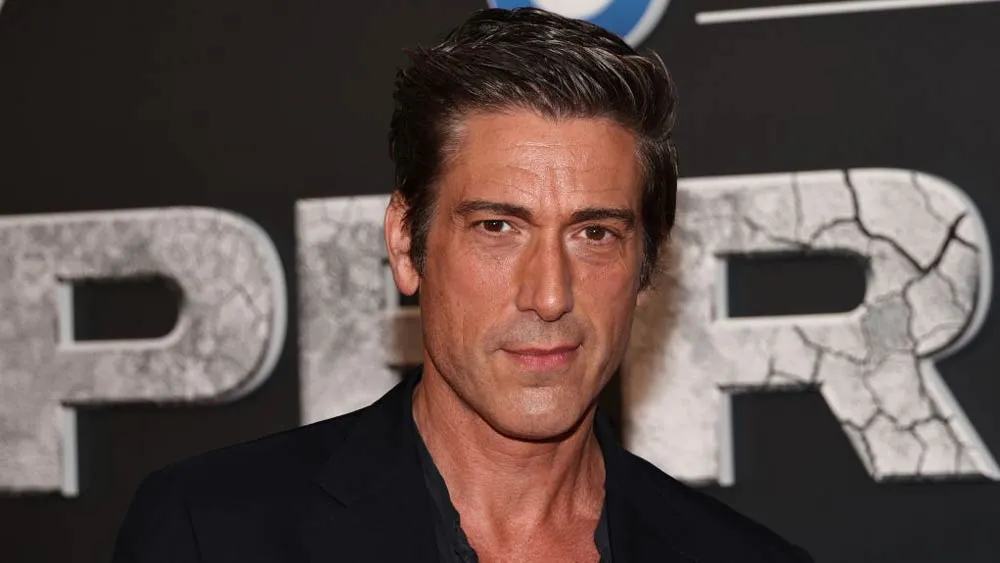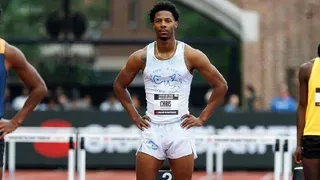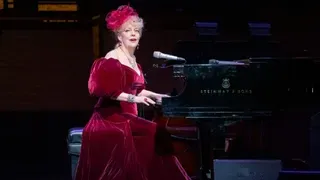March 18, 2015
Wicked! An Interview with Stephen Schwartz
Kilian Melloy READ TIME: 9 MIN.
With "Wicked Awesome," the Boston Gay Men's Chorus will celebrate the music of one of the most influential contemporary Broadway composers ever to sit down at a piano: Stephen Schwartz.
Even better, the man behind the music of Broadway blockbusters (and Tony winners) "Godspell," "Pippin," and "Wicked" will join the chorus onstage to sing a few songs from his voluminous catalog, which also includes songs from the beloved films "Enchanted," "Pocahontas," "The Prince of Egypt," and "The Hunchback of Notre Dame."
Without a doubt, a highlight of "Wicked Awesome" will be the performance of "Testimony," in which Schwartz weaves together the words of participants in the "It Gets Better Project" to create a powerful and moving portrait of the LGBT community's strength and resilience.
We recently conducted an email interview with Schwartz, who discussed what it's like to perform with gay men's choruses, "Wicked"'s Box-office-busting success, the emotional process of writing "Testimony," and how to write a song that will strike a chord in a million hearts: "Tell the truth and make it rhyme."
You've performed with the San Francisco and Los Angeles gay men's choruses, and soon you'll be performing with the Boston Gay Men's Chorus. How did these collaborations come about?
Stephen Schwartz: I've always loved the sound of a big chorus and enjoy writing for them. My first experience with one of the Gay Men's Choruses was when I got a request from the [San Francisco Gay Men's Chorus] a few years back, asking if they could put together an evening of my material. In addition, they asked if I would write a piece for them, which turned out to be "Testimony," and lastly if I would consider coming to sing with the chorus. It sounded like fun to me to perform with them, as indeed it proved to be.
"Wicked Awesome" includes sections that span your career, from "Godspell" and "Pippin" to "Wicked" and less well-known shows like "Children of Eden" and "The Magic Show." What song are you most looking forward to performing or hearing the chorus perform and why?
I don't really know how to answer that. People always seem to want to know "favorites," but I don't really have any. I guess what I am most looking forward to is singing with the chorus, which as I said above is always a great feeling.
Each of the choruses that have done concerts featuring your work all used "Wicked" in their titles. The musical "Wicked" has broken every box-office record and is still going strong. What gives "Wicked" its staying power?
Obviously, all of us involved with the creation of "Wicked" have given that question a lot of thought. My best guess is the audience identification with the character of Elphaba, and the fact that she as a social outcast comes into her power, but not without a cost that de-sentimentalizes the story.
"Testimony" is a very powerful piece, with lyrics culled from the testimonies of participants in the "It Gets Better" project. Can you talk a little about your process of writing it?
When I was asked to do a choral piece for the [San Francisco Gay Men's Chorus], I knew pretty quickly that I wanted to do something that grew out of the "It Gets Better" project, a brilliant idea I much admire. But I didn't want simply to write a song called "It Gets Better" or the like, which I thought could easily become glib or preachy. So I contacted Dan Savage, the creator of "It Gets Better," and asked if I could be sent some of the interviews with men and women who had contributed to the project.
Dan generously and promptly complied, and as I read the many interviews, a couple of themes emerged - that many of the respondents had contemplated ending their lives at some point, and that they had come to be very glad they had stuck it out. This not only provided for me the journey of the piece, but I felt the real statements of these courageous men and women had a power and veracity that transcended what I might have invented.
In particular, I was struck by the statement of one man who, after describing his struggles with thoughts of suicide as a teenager, then said about his current state of mind: "And when I die, I want to come back as me." This moved me to tears then, as it does now, and I knew immediately that should be the last line of "Testimony." The cumulative power of these interviews also suggested to me a musical structure - that the piece should begin with individual voices contending with feelings of isolation, shame, and self-loathing, and coalesce into an entire community singing about the strength and serenity they have found with one another.
The song, like much of your music - "Defying Gravity," "Corner of the Sky," "Stranger to the Rain," and "Colors of the Wind," to name a few - encapsulate so beautifully both the struggles and joys of what it's like to be "the other" or feel like you don't fit in. What experiences in your background help you to articulate that sense of alienation, and also the strength that comes from embracing one's outsider status?
I think it's virtually impossible to grow up as an artistic kid and not feel like an outsider. Though the embarrassing fact is that I had quite a happy childhood and adolescence with a lot of friends, I still felt like a Martian inside, as if I had been dropped into this strange society and had to observe very carefully how to pass for normal. I think this combination has helped me to understand, for instance, both Elphaba and Glinda.
I'm sure you've been told that those songs and others have given much comfort and inspiration to LGBT people. When you're writing, do you ever consider the personal impact your music might have on listeners, or are you simply focused on writing in service of a given character in a film or musical?
I actually learned pretty early that if I wrote in a way that was as emotionally honest and vulnerable as I could [be], even though that's a pretty scary thing to do, others would find parts of themselves in what I revealed about myself. So I actually don't think about the audience very much when I write, just about trying to find the character I'm writing for inside of me and allowing myself to express that character's need, fears, aspirations, and defiance in as true a way as I can. My fatuous way of putting it is: "To write a song, tell the truth, and make it rhyme."
You've done whole musicals with religious themes, and written songs for films like "The Hunchback of Notre Dame" and "The Prince of Egypt" that are religious in nature. How important is religious faith to you personally?
There are a few things I won't discuss in interviews, and one of them is my personal beliefs. This is because I don't want there to be distance between my work and the audience based on the degree to which they personally agree or disagree with my views. I'd rather each audience member come to the work on his or her own terms, and let the work speak for itself without me as an individual getting in the way.
You've talked about a movie version of "Wicked" being in the works. What can you tell us about the status of that project? Do you have thoughts about who'd you like to see in the lead roles?
We (that is, my collaborator Winnie Holzman and I) are beginning the writing process. We have an outline (or structure or whatever you want to call it) that we are very excited about, one that we feel allows us to re-tell the story in cinematic terms, "unlimited," if you will, by what one can and can't do on stage. Beyond that, we really haven't given thought yet to casting, but once we have a screenplay and the songs (both existing and new), it will be time to move to that phase. All I can really say is, we've been having a lot of fun so far.
Boston Gay Men's Chorus presents "Wicked Awesome" with composer Stephen Schwartz, on Sat., March 21 at 8 pm and Sun., March 22 at 3 pm at New England Conservatory's Jordan Hall, 30 Gainsborough St., Boston. Tickets $20-$60 (Before ticket fees, $5 additional walk-up). Tickets available at www.bgmc.org or 617-542-SING (7464)
Kilian Melloy serves as EDGE Media Network's Associate Arts Editor and Staff Contributor. His professional memberships include the National Lesbian & Gay Journalists Association, the Boston Online Film Critics Association, The Gay and Lesbian Entertainment Critics Association, and the Boston Theater Critics Association's Elliot Norton Awards Committee.





